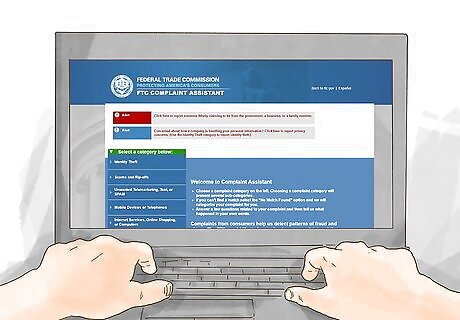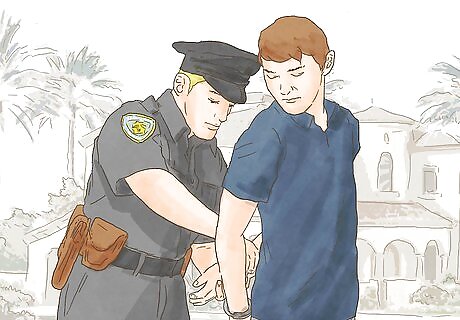
views
X
Trustworthy Source
Federal Trade Commission
Independent U.S. government agency focused on consumer protection
Go to source
Gather information about the fraud ahead of time and then visit the website. You should also report scams to other relevant government authorities, such as your local law enforcement and state’s Attorney General’s office. Your government can only protect others from fraud if they catch the scammer, so don’t delay reporting.
Using the Complaint Assistant

Gather information about the scam. You must provide the “who, what, where, and when” of the scam so that the FTC can investigate. Find this information before using the Complaint Assistant. For example, if you have a complaint about counterfeit checks, you should gather the following information: How you were contacted (e.g., phone, email, or you initiated the contact). The name of the scammer and any information about their company (such as address, phone number, etc.) The date you were first contacted. The amount you paid or were asked to pay. Your method of paying the scammer. Your contact information. Other details about the scam.

Select the appropriate complaint category. Visit the complaint assistant website here: https://reportfraud.ftc.gov/#/. Click on "Report Now," then choose from the following categories, as well as any related subcategories that appear on screen, before clicking "Continue." An impersonator Online shopping Job, money-making opportunity Sweepstakes, prize, lottery Phone, internet, TV service Auto sale, repair Health Credit, debt Just an annoying call Something else

Provide the requested information. You’ll have to provide information about yourself and the scam on four or five screens. Provide as much information as you can. The more you provide, the greater the likelihood the fraudster will be caught. If you need technical support, you can click on a link. It should say, “Click here to chat with a technical support specialist.” The hours are Monday through Friday, 9:00 am to 8:00 pm Eastern Standard Time.

Follow up with additional information, if requested. After receiving your complaint, the FTC will investigate. They should reach out to you if they need additional information. Provide all requested information promptly. If the FTC catches the fraudster, they won’t bring a lawsuit on your behalf. However, they can sue any scammer for breaking the law.
Reporting Scams to Other Agencies

Contact IC3 to report internet fraud. You can report any fraud involving the Internet to the Internet Crime Complaint Center (IC3), which was created by the FBI to facilitate sharing information about Internet fraud. Provide much the same information you provide to the FTC: victim’s name and contact information (address, email, telephone number) specific details on how you were victimized financial transaction information, such as account information, amount of transaction, who the money was sent to other relevant information

Report scams to affected government agencies. Some scams might involve a federal or state agency. You’ll want to report the scam right away so that they can investigate as well. For example, you may need to contact the following: Social Security Administration. If someone tried to sell you a Social Security Number or a forged card, then report it to 1-800-269-0271 from 10:00 am to 4:00 pm Eastern Standard Time. You may also mail complaints to Social Security Fraud Hotline, PO Box 17785, Baltimore, MD 21235. U.S. Mail. If the fraudster used the U.S. Mail to commit the fraud, then report it to the U.S. Postal Inspection Service. You may complain by calling 1-800-275-8777. Federal Communications Commission. File a complaint with the FCC for frauds related to telephones, such as unexplained charges on your bill or telemarketing scams. You can report fraud at the Consumer Complaint Center, which you can access at: https://consumercomplaints.fcc.gov/hc/en-us. USA.gov. You should notify USA.gov if someone is impersonating one of their employees. You can notify them using live chat at this webpage: https://www.usa.gov/chat.

Call your state’s Attorney General. Each state has an attorney general who will investigate suspected fraud. Although the Attorney General will not represent you in a lawsuit, they have the power to bring a lawsuit on behalf of the citizens of your state. There may be an online complaint form you can use. Check on the Attorney General’s website. You can find your Attorney General by visiting the National Association of Attorneys General’s website here: https://www.naag.org/find-my-ag/.

Call local law enforcement. Local law enforcement also needs to know about the scam. They may be able to catch the scammer and help get your money back. You should contact them as soon as possible and provide the same information you provide to the FTC. Also get a copy of the police report. You might need it in case the scammer commits identity theft and you need to contact your credit card companies or bank. Local law enforcement might help you with the best up to date information on how to deal with the scam and how to report it properly.




















Comments
0 comment